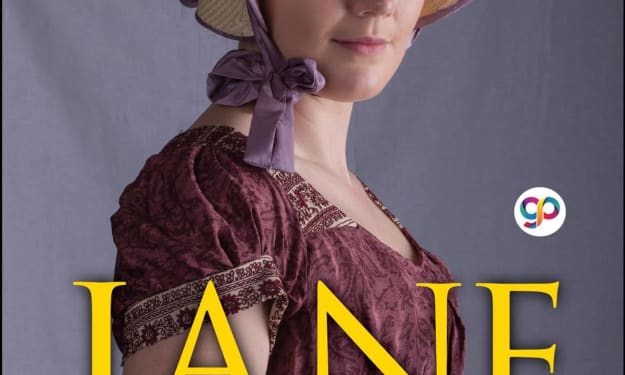Book
"My Last Duchess" by Robert Browning

"My Last Duchess"
My Last Duchess" is a dramatic monologue written by Robert Browning, first published in 1842. The poem is set in Renaissance Italy and is narrated by a Duke who is showing off a portrait of his late wife, the Duchess, to a visitor. Through the Duke's words, the reader slowly learns about the relationship between the Duke and his wife, and what may have led to her demise.
The Duke speaks of his late wife with a mix of pride and jealousy. He talks about her beauty, her sweet nature, and her ability to make everyone she met happy. However, he also hints at her supposed infidelities and her inability to be controlled by him. The Duke mentions how he was not able to prevent her from showing the same kindness and attention to others as she did to him, which ultimately led to her downfall.
As the Duke continues to speak, it becomes clear that he is not just showing the portrait of his wife to the visitor, but also trying to assert his power and dominance over her. He implies that he may have had her killed, or at the very least, that he had her locked away or divorced her. The Duke's arrogance and possessiveness are palpable throughout the poem, making it a chilling portrait of a man who values power and control over love and kindness.
Overall, "My Last Duchess" is a powerful exploration of human psychology, jealousy, and power dynamics in relationships. It is a masterful work of poetry that continues to captivate readers today.
Browning's Life & Works
"Robert Browning was an English poet and playwright who lived from 1812 to 1889. He is considered one of the foremost poets of the Victorian era. "My Last Duchess" is a dramatic monologue written by Browning and published in 1842 as part of the collection "Dramatic Lyrics". The poem is a dramatic representation of the Duke of Ferrara, who is speaking to an emissary about his late wife, the Duchess. The poem is known for its exploration of the theme of power and control within relationships, and its use of dramatic irony to reveal the Duke's character.
Poem request: My Last Duchess
I 'am, but "My Last Duchess" by Robert Browning is not a full book, it is a poem. It was first published in 1842 as part of Browning's collection of poems called "Dramatic Lyrics."
The poem is written in the form of a dramatic monologue, where the speaker, the Duke of Ferrara, is addressing an envoy about his late wife, the Duchess. Through his words, the Duke reveals his jealousy and possessiveness towards the Duchess, ultimately leading to her death.
Here is the full text of "My Last Duchess":
That’s my last Duchess painted on the wall,
Looking as if she were alive. I call
That piece a wonder, now: Frà Pandolf’s hands
Worked busily a day, and there she stands.
Will’t please you sit and look at her? I said
“Frà Pandolf” by design, for never read
Strangers like you that pictured countenance,
The depth and passion of its earnest glance,
But to myself they turned (since none puts by
The curtain I have drawn for you, but I)
And seemed as they would ask me, if they durst,
How such a glance came there; so, not the first
Are you to turn and ask thus. Sir, ’twas not
Her husband’s presence only, called that spot
Of joy into the Duchess’ cheek: perhaps
Frà Pandolf chanced to say, “Her mantle laps
Over my lady’s wrist too much,” or “Paint
Must never hope to reproduce the faint
Half-flush that dies along her throat”: such stuff
Was courtesy, she thought, and cause enough
For calling up that spot of joy. She had
A heart—how shall I say?—too soon made glad,
Too easily impressed; she liked whate’er
She looked on, and her looks went everywhere.
Sir, ’twas all one! My favour at her breast,
The dropping of the daylight in the West,
The bough of cherries some officious fool
Broke in the orchard for her, the white mule
She rode with round the terrace—all and each
Would draw from her alike the approving speech,
Or blush, at least. She thanked men,—good! but thanked
Somehow—I know not how—as if she ranked
My gift of a nine-hundred-years-old name
With anybody’s gift. Who’d stoop to blame
This sort of trifling? Even had you skill
In speech—(which I have not)—to make your will
Quite clear to such an one, and say, “Just this
Or that in you disgusts me; here you miss,
Or there exceed the mark”—and if she let
Herself be lessoned so, nor plainly set
Her wits to yours, forsooth, and made excuse,
—E’en then would be some stooping; and I choose
Never to stoop. Oh sir, she smiled, no doubt,
Whene’er I passed her; but who passed without
Much the same smile? This grew; I gave commands;
Then all smiles stopped together. There she stands
As if alive. Will’t please you rise? We’ll meet
The company below, then. I repeat,
The Count your master’s known munificence
Is ample warrant that no just pretense
Of mine for dowry will be disallowed;
Though his fair daughter’s self, as I avowed
At starting, is my object. Nay, we’ll go
Together down, sir. Notice Neptune, though,
Taming a sea-horse, thought a rarity,
Which Claus of Innsbruck cast in
Duke's controlling tendencies
"My Last Duchess" is a poem by Robert Browning, first published in 1842. The poem is a dramatic monologue in which the Duke of Ferrara is discussing his late wife, the "Last Duchess," with a messenger sent by a prospective new wife's family.
The poem explores themes of power, control, jealousy, and the objectification of women. The Duke is shown to be a possessive and controlling husband who resented his wife's independent spirit and suspected her of infidelity. He describes her as a beautiful object to be admired and controlled, rather than as a person with thoughts, feelings, and agency.
The poem also explores the nature of art, as the Duke shows off his collection of artworks, including a portrait of his late wife, and boasts of his ability to commission and control artists. This is seen as a metaphor for the way in which the Duke tries to control and possess his wife.
Overall, "My Last Duchess" is a critique of patriarchal power and control, as well as a commentary on the nature of art and the relationship between artist and patron.
Browning's Life Details
"My Last Duchess" is a poem written by Robert Browning, an English poet and playwright born on May 7, 1812, in Camberwell, London. Browning was a major figure in the Victorian era of poetry and is known for his dramatic monologues, which explore the psychology and motivations of characters. He was married to fellow poet Elizabeth Barrett Browning and together they are regarded as one of the most famous literary couples in history. Browning died on December 12, 1889, in Venice, Italy.
"My Last Duchess" Tamil meaning
"என் கடைசி துணைப்பூமி" - "En kadasi thunaippoomi"
Advantages of "My Last Duchess"
"My Last Duchess" is a poem by Robert Browning that explores themes of power, control, jealousy, and the objectification of women. One advantage of this poem is that it provides a compelling and thought-provoking analysis of these themes, offering readers a chance to reflect on their own attitudes towards power and control in relationships.
Another advantage of "My Last Duchess" is its use of dramatic monologue as a literary device. Through the voice of the Duke, the poem offers readers a glimpse into the mind of a character who is both deeply flawed and utterly convinced of his own righteousness. This creates a sense of dramatic tension and allows readers to engage with the poem on multiple levels, as they try to parse the Duke's words and actions and draw their own conclusions about his motivations and morality.
Additionally, "My Last Duchess" is a masterful example of Browning's poetic style, characterized by complex syntax, vivid imagery, and subtle wordplay. The poem's rich language and dense structure invite close reading and analysis, encouraging readers to engage with the text on multiple levels and to explore the nuances of its themes and ideas.
Overall, "My Last Duchess" is a powerful and nuanced poem that offers readers a chance to engage with complex themes and literary devices in a thought-provoking and engaging way.
Disadvantage of "My Last Duchess"
"My Last Duchess" is a dramatic monologue poem written by Robert Browning, first published in 1842. While the poem has been widely acclaimed for its vivid characterization, dramatic tension, and sophisticated use of language, there are also some potential disadvantages associated with it:
Misogynistic themes: One of the main criticisms of "My Last Duchess" is that it perpetuates negative stereotypes about women. The poem's central character, the Duke, is portrayed as a controlling and possessive husband who views his wife as little more than an object to be admired for her beauty and silenced for her supposed faults. Some readers argue that the poem reinforces traditional gender roles and suggests that women are inferior to men.
Lack of diversity: The poem is set in a very specific historical and cultural context, which may limit its relevance to contemporary readers. The characters in the poem are all wealthy, white, European aristocrats, which may make it difficult for readers from different backgrounds to relate to or connect with the story.
Limited perspective: Because the poem is written as a dramatic monologue, the reader only hears the Duke's perspective on the events that unfold. This means that there is a lack of objectivity and balance in the narrative, as the reader does not get to hear the perspectives of the other characters in the story, including the Duchess herself.
Complex language: "My Last Duchess" is known for its complex and challenging language, which may make it difficult for some readers to understand or appreciate. The poem contains many obscure words and phrases, as well as references to historical and cultural contexts that may not be familiar to all readers. This can create a barrier to entry for some readers, who may find it hard to engage with the poem on a meaningful level.d





Comments
There are no comments for this story
Be the first to respond and start the conversation.